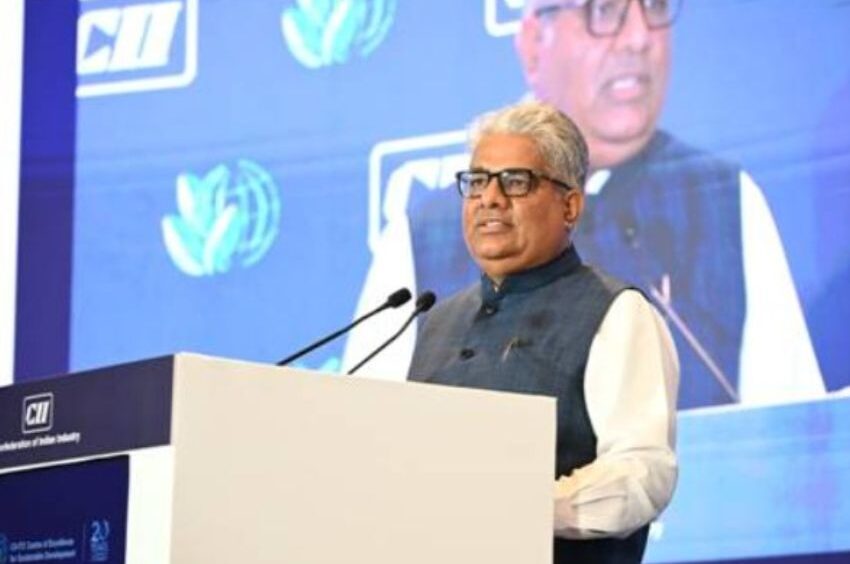Green Finance Key To Competitive Economies, Says Bhupender Yadav

Minister draws attention to role of private capital, carbon markets, and fairness in climate transition
Union Minister for Environment, Forest and Climate Change Bhupender Yadav on Thursday said green finance is “the backbone of resilient competitive economies” and cannot remain a niche sector, as India and other emerging economies grapple with the scale of funding required for climate transition.
Speaking at Ficci’s Leads 2025 conference, Yadav underlined that climate finance must be treated as development finance. “Green finance is about restructuring the flow of capital so that every investment in infrastructure, industry, transport or agriculture contributes to sustainability rather than undermines it,” he said.
The minister noted that while global green investment crossed USD 1.8 trillion in 2023, emerging economies received less than a quarter of this flow. According to Ficci President Harsha Vardhan Agarwal, this financing gap poses a serious risk to developing countries’ ability to meet climate commitments.
Yadav highlighted India’s sovereign green bonds programme as a marker of investor confidence but cautioned that public funds alone cannot deliver the transition. “Fiscal space is tight. The role of public budgets and concessional finance is to de-risk, crowd in and set rules that unlock private capital,” he said.
He outlined a three-pronged strategy under Prime Minister Narendra Modi’s leadership: positioning climate finance as development finance, enabling early green investors to build future value chains, and pressing developed countries to raise their commitments to the Global South.
A key part of India’s approach is the revised Green Credit Programme, notified on 29 August 2025, which introduces direct private participation and minimum restoration commitments to mobilise capital for climate action.
Yadav also emphasised the role of carbon markets under Article 6 of the Paris Agreement. “High integrity carbon markets governed by transparent baselines, conservative crediting and clear corresponding adjustments can channel billions into mitigation that would otherwise not be financed,” he said.
The minister added that finance remains the decisive factor for climate action. “Article 6 of the Paris Agreement is not just about carbon credits, it is about fairness, innovation, and enabling the Global South to access finance and technology for a just transition.”





































































































































































































































































































































































































































































































































































































































































































































































































































































































































































































































































































































































































